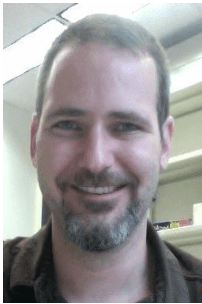In the United States, almost three of every 1,000 children are born with a detectable level of hearing loss in one or both ears, according to the National Institute on Deafness and Other Communication Disorders (NIDCD). An early-stage researcher at Case Western Reserve University School of Medicine is receiving a major grant to help address the problem in an innovative way, the school announced.
Martin Basch, PhD, assistant professor of otolaryngology—head and neck surgery, has been named a recipient of a 2016 Hartwell Individual Biomedical Research Award. The award helps researchers pursue early-stage, cutting-edge biomedical pediatric research. With the award, Basch will pioneer the study of cell therapies to treat congenital strial deafness, with the goal of restoring hearing.
The 2016 award, which provides $300,000 in direct costs for 3 years, is being given to 12 recipients from 10 institutions nationally. The Hartwell Foundation is a Memphis, Tennessee-based philanthropic institution that funds innovative biomedical research to benefit children of the United States.
“I want to express my gratitude to The Hartwell Foundation for recognizing the important work of Dr Basch and providing generous support for his future critical discoveries,” said Lynn Singer, PhD, deputy provost and vice president for academic affairs at Case Western Reserve University. “The Foundation’s commitment to supporting the next generation of pediatric researchers is paving the way for better health outcomes for children everywhere.”
“The Hartwell Foundation seeks to inspire innovation and achievement by offering individual researchers an opportunity to realize their professional goals. We provide an opportunity for those we support to make a difference and to realize their hopes and dreams,” said Fred Dombrose, PhD, president of The Hartwell Foundation.
With the grant, Basch will focus on developing a therapeutic approach for restoring hearing using a model of congenital strial deafness. Normal hearing requires the proper development of the cochlea, the hearing portion of the inner ear. The cochlea includes the auditory organ that contains the sensory hair cells responsible for sound detection and the stria vascularis, the “battery” that provides the energy for auditory hair cells to function.
“Although 30 to 40 percent of congenital hearing loss is accounted for by defects in the stria, the regenerative potential of this complex tissue has been largely unexplored,” Basch said. “Over the past decade, considerable and important efforts have been made to understand the biology of the sensory hair cells in the mammalian cochlea, with the aim of applying the principles of embryonic development to regenerative therapies. I will be adding a new focus on the stria vascularis to this vital work.”
Basch’s hypothesis is that specialized cells isolated from the stria vascularis which have not fully differentiated and still preserve many characteristics from their progenitor cells retain the ability to differentiate into functional mature intermediate cells. He will research if such stem cells will restore hearing when injected into the lateral wall of the cochlea in a strial deafness mouse model.
“If we are successful,” Basch said, “it should be possible to generate equivalent human cell lines and conduct clinical trials, with the potential to benefit the large number of children affected with severe hearing loss due to defects in the stria.”
In addition to the Individual Biomedical Research Award, Case Western Reserve qualified for a Hartwell Fellowship of $100,000 to support a postdoctoral candidate for 2 years. CWRU will select its recipient later this spring. Case Western Reserve has seven other faculty members who are current or former Hartwell investigators:
• 2015, Hoonkyo Suh, PhD, assistant professor of molecular medicine, for his work titled “Hippocampal Nerve Cell Networks in Autism Spectrum Disorders;”
• 2014, Brian A. Cobb, PhD, associate professor of pathology, for his work titled “Harnessing Lymphocyte Cooperativity for the Treatment and Prevention of Asthma;”
• 2013, Roberto F. Galan, PhD, assistant professor of neuroscience, for his work titled “Cortical Network Dynamics and Epileptiform Activity in Autism: From Animal Models to Children;”
• 2012, Saptarsi Haldar, MD, assistant professor of medicine, for his work titled “Creating a New Treatment Approach for Duchenne Muscular Dystrophy;”
• 2011, Jennell C. Vick, PhD, assistant professor of psychological sciences, biomedical engineering, and pediatrics, for her work titled “Treatment for Severe Speech Disorders in Children: Identifying Target Consonant Movements for Use with Animated 3D Visual Feedback Software;”
• 2011, Jonathan E. Sears, MD, assistant professor of ophthalmology and cell biology, for his work titled “Preventing Retinopathy of Prematurity;”
• 2007, M. Michael Wolfe, MD, professor of medicine, for his work titled “Peptide Replacement Therapy Using Transgenic Stem Cells Delivered to the Small Intestine” (He received his Hartwell award at another institution before joining Case Western Reserve).
Basch, a native of Buenos Aires, Argentina, earned his doctorate in 2004 at the California Institute of Technology and joined the Department of Otolaryngology at CWRU School of Medicine in May 2015.
To see the full list of 2016 Hartwell Individual Biomedical Research Award winners, please visit The Hartwell Foundation’s website here.
Source: Case Western Reserve University School of Medicine
Image: Case Western Reserve University School of Medicine website





